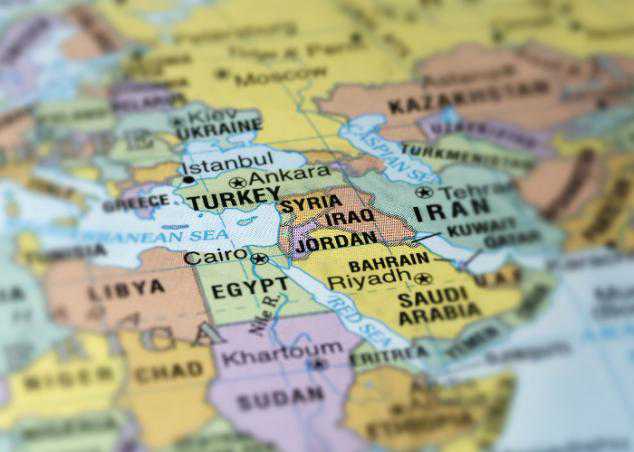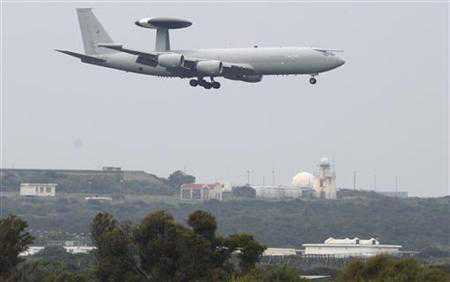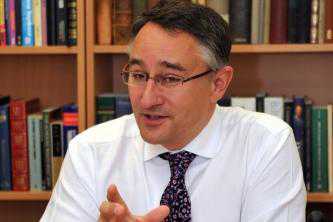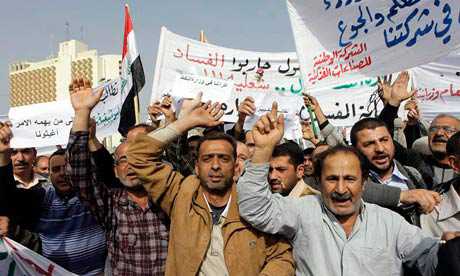
The following op-ed by Tony Blair first appeared in The Times and the Wall Street Journalon Saturday 19th March 2010
The crisis in Libya has forced back on to the agenda all the tough choices of modern-day foreign policy. Should we intervene? Do we do so for moral reasons as well as those of national interests? How do we balance the need for a policy that is strong, assertive and well articulated with the desire not to appear overmighty and arrogant, disrespecting others and their culture?
Two preliminary points must be made. In today’s world the distinction between moral outrage and strategic interests can be false. In a region where our strategic interests are dramatically and profoundly engaged, it is unlikely that the effect of a regime going rogue and brutalising its own people will remain isolated within its own borders. If Colonel Gaddafi were allowed to kill large numbers of Libyans to squash the hope of a different Libya, we shouldn’t be under any illusion. We could end up with a pariah government at odds with the international community — wounded but still alive and dangerous. We would send a signal of Western impotence in an area that analyses such signals keenly. We would dismay those agitating for freedom, boosting opposition factions hostile to us.
This underlines the other preliminary point: inaction is also a decision, a policy with consequence. The wish to keep out of it all is entirely understandable; but it is every bit as much a decision as acting.
So the decision to impose a no-fly zone and authorise all necessary measures to protect threatened civilians comes not a moment too soon. It is a shift to a policy of intervention that I welcome. Such a policy will be difficult and unpredictable. But it is surely better than watching in real time as the Libyan people’s legitimate aspiration for a better form of government and way of life is snuffed out by tanks and planes.
Events in Libya cannot be divorced from what is happening across the Middle East. It is here that Western policy is still evolving. The implications are vast.
Decisions taken now will define attitudes to us for a generation; they will also heavily influence the outcomes. They will have to be taken, as ever, with imperfect knowledge and the impossibility of accurate foresight.
The key to making those decisions is to develop a strategic framework for helping to shape this revolutionary change sweeping the region. We need a policy that is clear, explicable and that marries our principles to the concerns of realpolitik. It also has to recognise that we are not spectators in what is happening. History, attitude and interests all dictate that we are players.
First, there is no doubt that the best, most secure, most stable future for the Middle East lies in the spread of democracy, the rule of law and human rights. These are not “Western” values; they are the universal values of the human spirit. People of the Middle East are no different in that sense from the people of Europe or America.
Second, however, getting there is a lot more complex than it was for Eastern Europeans when the Soviet Union collapsed. In that case you had hollowed-out regimes that were despised by a people eager for change and, vitally, agreed as to the type of society the change should produce. They looked over the Wall, saw the West and said: that’s what we want. By and large, that is what they now have.
In the Middle East those protesting agree completely on removing existing regimes, but then thoroughly disagree on the future. There are two competing visions. One represents modernising elements who essentially want to share the freedom and democracy we have; the other, Islamist elements who have quite a different conception of how change should go.
In saying this, I am not “demonising” the Muslim Brotherhood or ignoring that they too have their reformists. But there is no point, either, in being naive. Some of those wanting change want it precisely because they regard the existing regimes as not merely too oppressive but too pro-Western; and their solutions are a long way from what would provide modern and peaceful societies.
So our policy has to be very clear: we are not just for change; we are for modern, democratic change, based on the principles and values intrinsic to democracy. That does not just mean the right to vote, but the rule of law, free speech, freedom of religion and free markets too.
Third, working in that framework, we should differentiate when dealing with different countries. This too will require difficult decisions in instances where things are often not clean and simple, but messy and complex.
In the case of Libya, there is no way out being offered to its people. It is status quo or nothing. When Libya changed its external policy — renouncing terrorism, co-operating against al-Qaeda, giving up its nuclear and chemical weapons programme — I believe we were right to alter our relationship with it. At the onset of the popular uprising, the Gaddafi regime could have decided to agree a proper and credible process of internal change. I urged Colonel Gaddafi to take that route out. Instead he decided to crush it by force. No credible path to a better constitution was put forward.
By contrast, round the Gulf, countries are reforming in the right direction. The pace may need to quicken but here it is right to support such a process and to stand by our allies. Even in Bahrain, although there can be no justification for the use of violence against unarmed civilians, there is a strong case for supporting the process of negotiation led by the Crown Prince that does offer a means of peaceful transition to constitutional monarchy. This is not realpolitik over principle. It is a recognition that it is infinitely preferable to encourage reform that happens with stability than to push societies into a revolution whose motivations will be mixed and whose outcome will be uncertain.
Fourth, in respect of Tunisia and Egypt, they now need our help. Protests don’t resolve policy questions. Demonstrations aren’t the same as governments. It is up to the emerging leaders of those nations to decide their political systems. But that is only one part of their challenge. They have young populations, often without jobs. Whatever the long-term benefits of political change, the short-term cost, in investment and the economy, will be big. This will require capital. It will also require the right policy framework, public sector reform and economic change that will sometimes be painful and controversial. Otherwise be clear: the danger is that in two or three years the political change is unmatched by economic progress and then in the disillusion that follows, extreme elements start to get traction. So talk of a Marshall Plan-type initiative is not overexcitable. It is completely to the point.
Fifth, we ignore the importance of the peace process between Israelis and Palestinians at our peril. This absolutely must be revitalised and relaunched. I know it is said that this wasn’t the issue behind the uprisings. That is true. But we are deluding ourselves if we don’t think that its outcome matters profoundly to the region and the direction in which it develops. In any event, the change impacts immediately and directly on the parties. For Israel it makes peace all the more essential; it also sharpens acutely its security challenge. For the Palestinians it gives them a chance to be part of the democratic change sweeping the region, but only if they are on the march to statehood. If not they are highly vulnerable to their cause being hijacked yet again by extremists.
Sixth, we should keep up pressure on the regime in Iran. We should be open and forthright in supporting change in Tehran. If there were such change, it would be possibly the single most important factor in stimulating optimism about change elsewhere. Tehran’s present influence is negative, destabilising and damaging. It needs to know what our red lines are and that we intend to enforce them.
Finally, in the Middle East religion matters. Nothing in this region can be fully explained or understood without analysing the fundamental struggle within Islam. That struggle can only ultimately be resolved by Muslims. But how non-Muslims have a dialogue and, if possible, a partnership with Islam can influence crucially the debate between reform and reaction.
This is a large agenda. Some will object to the very notion of our having such an agenda: “Leave them to solve their own problems.” The difficulty is that their problems swiftly become ours. That is the nature of the interdependent world we inhabit today.
Others will say we should be careful of forming “our agenda”: it will be “resented”; we will heighten “anti-Western feeling”, “remember Iraq and Afghanistan” and so on.
One essential part of handling this right is to liberate ourselves from a posture of apology that is not merely foolish but contrary to the long-term prospects of the region. Of course you can debate whether the decisions to go to war in Iraq or Afghanistan were right. But the idea that the prolonged nature of both battles invalidates intervention or is the “West’s” fault is not only wrong, it is at the root of why we find what is happening today not just in the Middle East but also in Pakistan and elsewhere so perplexing. The reason why Iraq was hard, Afghanistan remains hard and Pakistan, a nation with established institutions, is in difficulty, is not because the people don’t want democracy. They do. They have shown it time and again. It is because cultural and social modernisation has not taken hold in these countries, and proper religion has been perverted to breed fanatics, not democrats.
What this means is not that we turn away from encouraging democracy; but rather that we do so with our eyes open and our minds fully aware of the need for a comprehensive agenda so the change that occurs is the change that people really want and need.
Some years ago, under the previous US Administration, there was a concept called the Greater Middle East Initiative, about how to help to bring about change in the region. The circumstances of the time were not propitious. They are today. We should politely but firmly resist those who tell us this is not our business. It is. In dealing with it, we should show respect, but also strength, the courage of our convictions, and the self- confident belief we can achieve them.
www.tonyblairoffice.org, Mar 18, 2011






